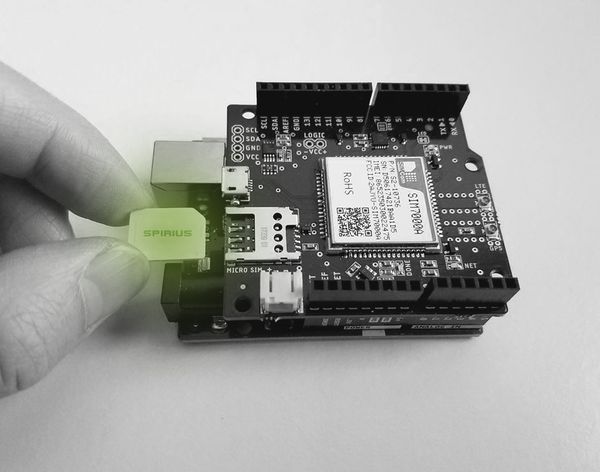Iot Data Sim Card IoT SIM
Iot Data Sim Card IoT SIM
Blog Article
Iot Sim Card Australia Prepaid 4G SIM Card Data
The panorama of producing is evolving quickly, pushed primarily by technological developments. Among these developments, IoT connectivity options for manufacturing automation stand out as pivotal components reshaping how industries function. The Internet of Things (IoT) integrates digital and physical worlds, creating a community of interconnected gadgets that communicate seamlessly. This interconnectedness allows manufacturers to optimize their processes and improve productiveness.
Real-time information is a cornerstone of contemporary manufacturing. Through IoT connectivity options, machines and sensors generate knowledge that present insights into production processes. This immediate access to information empowers producers to make informed selections quickly. For occasion, if a machine is underperforming, operators can determine the difficulty and implement corrective actions without delay, ultimately minimizing downtime and enhancing throughput.
Predictive maintenance is one other significant good factor about IoT connectivity options. By constantly monitoring tools performance by way of quite a few sensors, manufacturers can anticipate failures earlier than they happen. This proactive method drastically reduces maintenance costs and improves the lifecycle of machinery. Instead of adhering to a reactive maintenance technique, organizations can optimize their maintenance schedules based on actual machine conditions.
Iot Data Sim Card IoT SIM card Knowledge Base
IoT technology also facilitates higher supply chain management. With the integration of sensors throughout the provision chain, producers acquire enhanced visibility into inventory ranges and materials flows. This improved visibility allows businesses to optimize inventory administration, guaranteeing that they've the mandatory materials readily available with out overstocking. Such effectivity translates to lowered costs and improved service ranges, that are essential for maintaining a competitive edge.
Automation and robotics are increasingly reliant on IoT connectivity options. Smart factories integrate automated techniques powered by IoT to streamline production processes. Robotics geared up with IoT capabilities can communicate with each other and adjust their actions based on real-time information from the environment. This degree of synchronization enables the implementation of adaptive manufacturing techniques that respond to fluctuations in demand quickly and successfully. Vodafone Iot Sim Card.
Iot Sim copyright IoT SIM cards
Implementing IoT connectivity solutions requires a strong community infrastructure. Manufacturers must put money into dependable and secure communication networks capable of handling the immense data generated by interconnected units. 5G know-how is emerging as a vital enabler of IoT connectivity in manufacturing. Its speedy speed and low latency assist the real-time purposes that are important for data-driven decision-making.
Data analytics performs an important function in harnessing the complete potential of IoT connectivity solutions. With a wealth of knowledge generated from related units, producers should make use of advanced analytics instruments to extract actionable insights. Machine learning algorithms can establish patterns and anomalies in data that may not be apparent to human analysts. This data-driven method enhances operational efficiency by driving continuous enchancment across manufacturing processes.
Cybersecurity is an essential consideration as manufacturers integrate IoT options into their operations. The connectivity that IoT brings will increase the surface space for potential cyberattacks. Implementing strong security measures to safeguard critical manufacturing methods is paramount. This involves guaranteeing that each one gadgets are secure, data is encrypted, and continuous monitoring for threats is in place.
Worker security is significantly improved by way of IoT connectivity solutions. Wearable units equipped with sensors can monitor the health and safety of employees in actual time. These smart wearables can alert personnel to hazardous conditions, guaranteeing timely intervention. Such measures not solely shield workers but also contribute to general productiveness by minimizing the danger of accidents.
Iot Sim Card Australia IoT SIM Card M2M Devices
The transition to smart manufacturing through IoT connectivity solutions also promotes sustainability. By optimizing processes, producers can significantly reduce waste and energy consumption. IoT units assist monitor useful resource usage, enabling companies to establish areas the place efficiency could be enhanced. These environmentally friendly practices not only benefit the planet but also can result in value financial savings over time.
The impact of IoT connectivity options on manufacturing extends past the operational realm. They allow enhanced customer engagement by permitting producers to ship personalized services. Through IoT-enabled gadgets, producers can collect information about buyer preferences, resulting in the creation of tailor-made offerings that higher meet market calls for. This stage of engagement fosters customer loyalty and strengthens brand popularity.
In conclusion, IoT connectivity options for manufacturing automation characterize a transformative drive within the business. By providing real-time insights, predicting equipment failures, improving supply chain management, and enhancing worker safety, these options redefine operational efficiency. As manufacturers continue to combine IoT technologies, the benefits extend past conventional metrics find out here now of productiveness and cost. Embracing these improvements units the groundwork for a more sustainable and responsive manufacturing environment that's geared up to fulfill the challenges of the long run.
What Is An Iot Sim Card IoT SIM card

- Enhanced real-time monitoring through IoT sensors allows manufacturers to trace machinery performance and operational efficiency.
- Predictive maintenance is facilitated by IoT connectivity, decreasing downtime and increasing gear lifespan via timely interventions.
- Seamless integration of IoT units across production strains enhances information assortment, leading to improved decision-making processes.
- Wireless technologies similar to LPWAN enable cost-effective communication over vast manufacturing services, minimizing set up complexity.
- Cloud-based IoT platforms present scalable options for data analytics and visualization, empowering producers to identify trends and optimize workflows.
- Enhanced asset monitoring utilizing IoT gadgets ensures higher stock administration and lowered losses because of misplacement or theft.
- Industry-specific IoT protocols, like MQTT and CoAP, guarantee efficient and secure information transmission tailor-made to manufacturing wants.
- Advanced cybersecurity measures are crucial in IoT ecosystems to protect sensitive operational information from potential threats and breaches.
- Integration of IoT with machine studying algorithms allows for autonomous adjustments and improvements in manufacturing processes primarily based on historic knowledge.
- Collaboration with IoT solution suppliers permits manufacturers to customize connectivity methods that tackle their unique operational challenges.
What are IoT connectivity options for manufacturing automation?
IoT connectivity solutions allow seamless communication between machines, sensors, and gadgets inside a manufacturing environment, facilitating data change, monitoring, and management to boost operational efficiency and decision-making.
How do IoT connectivity solutions improve manufacturing processes?
These options streamline workflows, scale back downtime, and optimize asset utilization by offering real-time data insights, enabling predictive maintenance, and enhancing supply chain visibility.
Iot Data Sim Card IoT SIM Cards Explained Connectivity
What forms of IoT connectivity technologies are commonly used in manufacturing?

Common technologies embody Wi-Fi, Zigbee, LoRaWAN, cellular (4G/5G), and Bluetooth. Each know-how provides distinctive benefits based on vary, knowledge transfer speed, and energy consumption fitted to different manufacturing wants.
How safe are IoT connectivity solutions for manufacturing?
Robust security measures, including encryption, gadget authentication, and network segmentation, are important to protect manufacturing environments from cyber threats, guaranteeing information integrity and operational continuity.
Global Iot Sim Card Need an IoT SIM card started
Can IoT connectivity options be built-in with existing manufacturing systems?
Yes, many IoT options are designed for interoperability, permitting integration with legacy methods and equipment. This allows manufacturers to boost their capabilities with out replacing existing infrastructure.
Nb Iot Sim Card IoT SIM cards
What are the price implications of implementing IoT connectivity solutions?
Initial setup costs could differ, but long-term savings are sometimes realized via increased effectivity, lowered waste, and improved maintenance methods (How Iot Sim Card Works). A detailed cost-benefit analysis might help click decide the financial impact.
How can I select the right IoT connectivity answer for my manufacturing facility?

Evaluate elements corresponding to scalability, reliability, ease of integration, and particular use case necessities. Consulting with industry consultants and conducting pilot tasks can help in identifying the most effective match on your wants.
Telkomsel Iot Sim Card IoT SIM Cards Introductory Guide
What are the challenges in adopting IoT connectivity options for manufacturing?
Challenges may embody cybersecurity concerns, interoperability points, and the need for staff coaching. Addressing these obstacles through strategic planning and stakeholder involvement can facilitate successful adoption.
How does knowledge collected via IoT connectivity affect decision-making in manufacturing?
Real-time knowledge analytics allows manufacturers to make informed choices shortly, optimizing operational processes, bettering quality control, and enabling proactive management of assets and potential points - Iot Sim Card South Africa.
Report this page